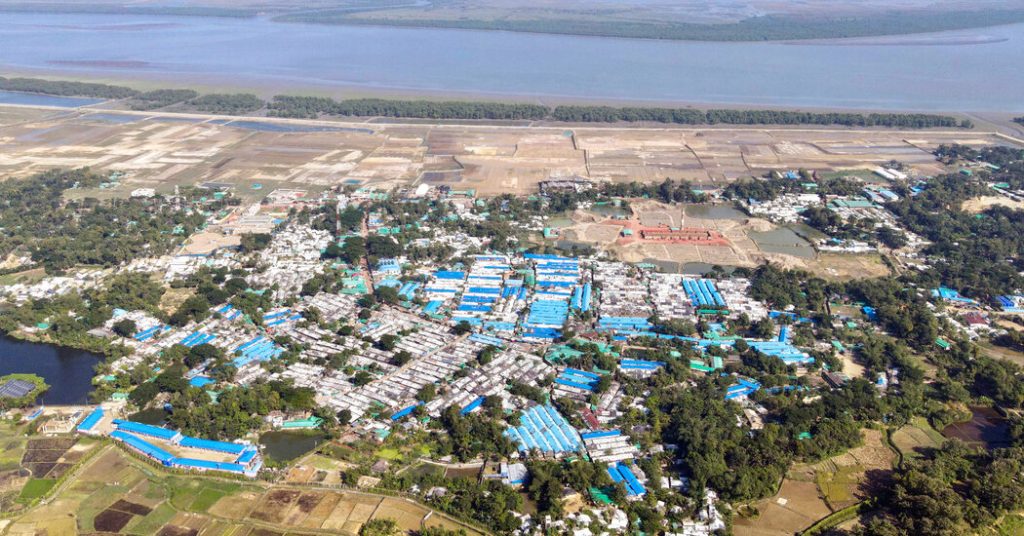The roughly one million Rohingya Muslims from Myanmar who have resettled in refugee camps in Bangladesh face a new threat: deadly violence from armed Rohingya groups and criminal gangs. These groups, referred to as the “night government,” are vying for control of the camps, leading to an increase in violence, including gunfights and abductions. Doctors working in the camps have noted a rise in the number of gunshot wounds treated, while local news media reported a doubling of killings in the camps. As a result, security has become a top concern in the camps, prompting some Rohingya to attempt dangerous boat journeys to flee.
Residents of the camps have accused the local police of being ineffective or complicit in the violence, a claim that police officials reject. The situation in the camps has become increasingly dangerous, with armed groups like the Arakan Rohingya Salvation Army (ARSA) terrorizing and fighting with their fellow Rohingya. These groups are involved in activities such as beatings, killings, kidnappings, rapes, and extortion, leading to increased fear and insecurity among the camp residents. The number of armed groups operating in the camps is estimated to be between five and 15, with most allied against ARSA, which has lost ground in recent years.
The roots of the armed groups in the camps can be traced back to opposition to the military junta in Myanmar, with groups like ARSA and the Rohingya Solidarity Organization (R.S.O.) seeking to control and exert influence over their own people. However, their actions have led to further violence and instability within the camps, exacerbating the already dire living conditions faced by the Rohingya refugees. The decline in international funding for the Rohingya crisis has only added to their challenges, with aid levels falling to as low as 30 cents per refugee per day.
The rise in violence in the camps has been alarming, with reports of increased killings, gunshot wounds, and the visible presence of arms. Armed groups have imposed their ideologies on Rohingya women, pushing for conservative dress and restricting their work opportunities. The restricted movement and dire living conditions in the camps have created a pressure-cooker environment, leading to increased tensions and confrontations among the residents. Human rights workers and advocates in the camps have faced threats and attacks, highlighting the precarious situation faced by the Rohingya refugees.
As the violence escalates in the camps, aid organizations and humanitarian workers are grappling with the challenges of providing assistance and ensuring the safety of the Rohingya refugees. Concerns about security, the proliferation of armed groups, and the impact on vulnerable populations, especially women and children, have become paramount. The need for increased support and international attention to address the root causes of the violence and instability in the camps is crucial to ensure the safety and well-being of the Rohingya refugees in Bangladesh. The plight of the Rohingya refugees highlights the ongoing humanitarian crisis and the urgent need for sustainable solutions to address their profound challenges and vulnerabilities.


